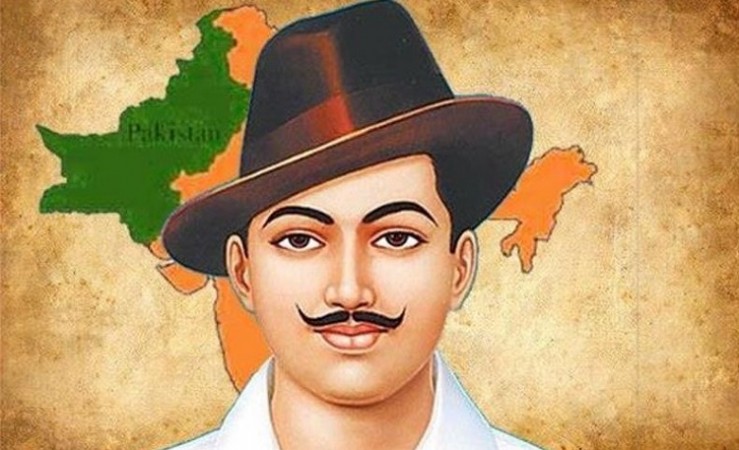
On September 27th, India celebrates the birth anniversary of one of its most iconic and inspiring freedom fighters, Bhagat Singh. Born in the Lyallpur district of undivided Punjab on September 27, 1907, Bhagat Singh's life and sacrifices have left an indelible mark on the pages of Indian history. His unwavering commitment to the cause of freedom and his fearless pursuit of justice continue to inspire generations of Indians.
Bhagat Singh was born into a politically active Sikh family. His father and uncles were ardent supporters of the Ghadar Party, a revolutionary organization that aimed to overthrow British colonial rule in India. In a twist of fate, Bhagat Singh's family members were released from prison on the very day he was born, setting the stage for a life deeply intertwined with the struggle for India's independence.
Growing up, Bhagat Singh was exposed to the ideals of the Arya Samaj movement. This movement, founded by Swami Dayanand Saraswati, promoted the purity and universal truths of the Vedas while vehemently opposing the corruption and obscurantism that had crept into many Hindu religious practices over time. These early influences shaped Bhagat Singh's worldview and instilled in him a sense of justice and righteousness.
As a young student at the Dayanand Anglo Vedic High School, Bhagat Singh's intellectual curiosity and his passion for his country's freedom began to flourish. He delved into the rich tapestry of India's history and the various philosophies that underpinned the freedom struggle. It was during these formative years that he started to question the methods being employed by the Indian National Congress, which largely adhered to Mahatma Gandhi's philosophy of non-violent resistance, known as Satyagraha and Ahimsa.
Bhagat Singh's disillusionment with non-violence as the sole means to achieve freedom led him down a more militant path. He believed that it was imperative to confront the British rulers with force, if necessary, to secure India's independence. This conviction led to his active involvement in revolutionary activities.
One of the most significant moments in Bhagat Singh's life was the Jallianwala Bagh massacre of 1919. Witnessing the brutality of British forces under General Dyer, who ordered the firing on unarmed Indian civilians, left an indelible mark on him. This tragic incident served as a catalyst for his commitment to the cause of freedom and justice.
Bhagat Singh's involvement in the freedom struggle took a dramatic turn when he and his associates avenged the death of Lala Lajpat Rai by bombing the Central Legislative Assembly in Delhi in 1929. Bhagat Singh and his comrades courted arrest but did not waver in their resolve. During their trial, they used the court as a platform to convey their message of revolution and the dire need for India's independence.
Unfortunately, Bhagat Singh, along with Rajguru and Sukhdev, was sentenced to death by hanging on March 23, 1931. His martyrdom at the young age of 23 shook the entire nation. Bhagat Singh's sacrifice became a symbol of the undying spirit of India's struggle for freedom. His famous slogan, "Inquilab Zindabad," meaning "Long Live the Revolution," continues to inspire generations of Indians to strive for justice and liberty.
As we commemorate Bhagat Singh Jayanti on September 27th, we honor the legacy of this fearless freedom fighter. His courage, unwavering commitment, and sacrifice for the motherland serve as a reminder of the immense price that was paid for India's freedom. Bhagat Singh's life and ideals continue to motivate us to uphold the principles of justice, equality, and freedom, making him an immortal icon in the annals of Indian history.